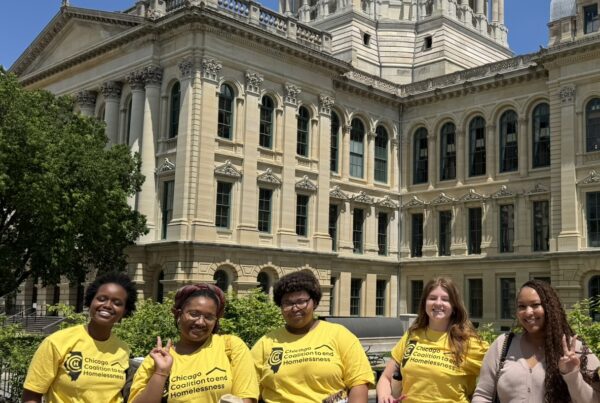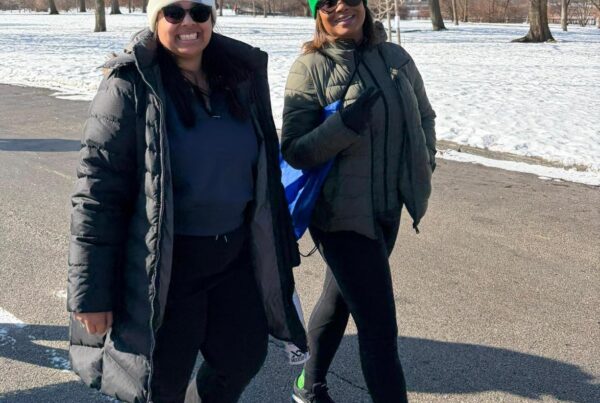By Diane O’Connell, Staff Attorney
Our Law Project staff and interns continue to monitor how the city of Chicago implements its policy regulating the seizure of personal property taken from homeless people who live on the street.
The policy was adopted in January 2015 after CCH, working with another legal aid group and private law firm, settled a case challenging the city’s practice of confiscating and destroying personal property. This included sleeping bags and medicine taken when the city ran “sweeps” of people who sleep on Lower Wacker Drive and under the Wilson Avenue viaduct at Lake Shore Drive.
Through the past year, the Law Project monitored approximately 20 street cleanings. Staff and interns also held 80 interviews with people who live on the street, including some follow-up interviews. This outreach and observation has raised significant concerns about the city’s compliance with its own policy.
Concerns include the city’s failure to provide intensive case management, social services, and long-term housing, as promised in the policy. Also at issue is the city’s failure to post proper signage and notice, ineffective outreach and engagement by city agencies, and whether training is offered to city workers who interact with homeless people.
During our advocacy, some concerns have been addressed by the city, including removal of outdated signs. Other practices continue in apparent violation of the policy, causing confusion and upsetting people impacted by sweeps.
Further informing our efforts is a guidance issued last August by the U.S. Interagency Council on Homelessness, Ending Homelessness for People Living in Encampments: Advancing the Dialogue. The guidance urges the decriminalization of homelessness and condemns the disruption of homeless encampments unless people can be connected with permanent housing.
Driving CCH’s advocacy are the experiences of homeless people who sleep outdoors in Uptown, Lower Wacker, and other areas. They rely on tents and other modest property as their only comfort and protection from harsh Chicago weather, with many of them also struggling with illness, addiction and disabilities.
When advocating with city officials, we have shared the Interagency Council’s guidance and the concerns relayed to us by homeless residents. The Law Project will continue to advocate improved conditions for people who experience street homelessness, seeking more predictability of sweeps, better services for those in need, and increased access to permanent housing for people who need it most.
Read more about the original settlement here.






